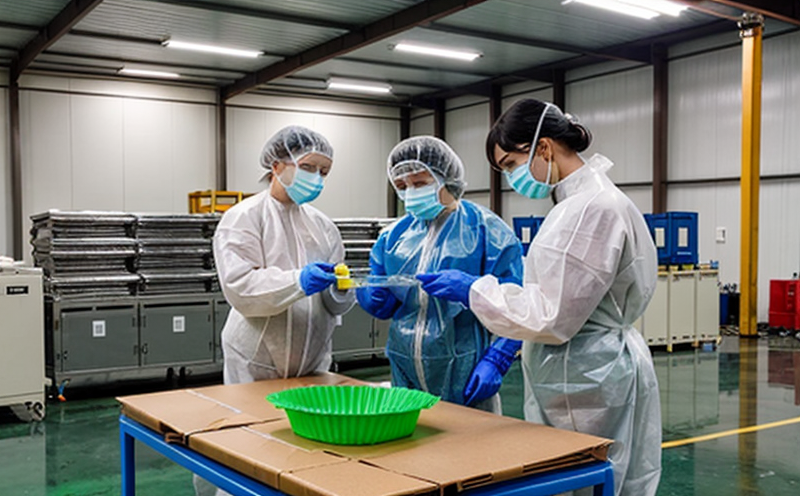ASTM D638-14 Tensile Testing of Bottles and Containers
The ASTM D638-14 standard test method is an essential tool for the packaging testing sector, particularly for assessing the tensile properties of plastic bottles and containers. This service ensures that the materials used in these products meet rigorous quality standards. By providing accurate and reliable data, we support our clients in ensuring product safety and compliance with international regulations.
ASTM D638-14 is widely recognized for its ability to measure the tensile strength and elongation at break of plastic materials, which are crucial factors for the design and manufacturing process. This test helps identify potential weaknesses or flaws in packaging that could lead to product failure. For quality managers and compliance officers, this service ensures adherence to industry best practices.
R&D engineers can use ASTM D638-14 to innovate and optimize their designs, ensuring that the materials they choose not only meet current standards but also have the potential for future improvements. In the context of packaging testing, understanding these properties is critical for developing products that are both functional and sustainable.
ASTM D638-14 focuses on the mechanical behavior of plastic samples under controlled loading conditions. This method is particularly useful for bottles and containers made from polyethylene (PE), polypropylene (PP), and other thermoplastics commonly used in packaging industries. The test involves measuring the tensile stress at which a specimen breaks, along with the corresponding elongation.
The testing process begins with careful preparation of the specimens according to ASTM D638-14 guidelines. This includes ensuring that the samples are free from defects and have consistent dimensions. Once prepared, the specimens are clamped into a tensile tester and subjected to controlled stretching until failure occurs. The force applied during this process is recorded, allowing for accurate calculation of tensile strength.
The results of ASTM D638-14 testing provide critical insights into the mechanical integrity of plastic packaging materials. This information is invaluable for quality assurance teams, as it helps them identify any potential issues early in the development cycle. Compliance officers can use these data points to ensure that their products meet all relevant regulatory requirements.
For procurement professionals, ASTM D638-14 testing ensures that they are sourcing materials from reliable suppliers who adhere to high standards of quality and consistency. By leveraging this test method, organizations can reduce the risk of purchasing substandard materials, which could compromise product performance and safety.
Applied Standards
| Standard | Description |
|---|---|
| ASTM D638-14 | This standard specifies the procedure for determining the tensile properties of plastics, including bottles and containers. |
| ISO 527-1:2012 | International equivalent specifying general requirements for tensile testing of plastics. |
| EN ISO 527-1:2012 | European equivalent, providing additional guidance on the mechanical testing of plastics. |
Why Choose This Test
- Comprehensive Data: ASTM D638-14 provides a comprehensive set of mechanical properties, including tensile strength and elongation at break.
- Industry Recognition: The standard is widely used in the packaging industry for quality assurance and compliance purposes.
- Innovation Support: R&D teams can use this test to optimize material selection and design improvements.
Environmental and Sustainability Contributions
- Material Optimization: Understanding the mechanical properties of plastic materials helps in selecting more durable and recyclable options for packaging.
- Eco-Friendly Design: By ensuring that packaging meets stringent tensile strength requirements, we contribute to reducing waste by promoting longer-lasting products.





